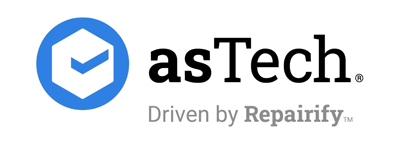The study shows the importance of verifying the accuracy of aftermarket scan tools.
asTech, a Repairify company, released its third Rules Engine case study from the asTech insights Institute, demonstrating the data-driven verification process of the patented and proprietary asTech Rules Engine, showing why it’s the only verified way to properly determine if an aftermarket scan can be trusted on a specific vehicle.
What Repairify’s Technicians Did
To develop its patented Rules Engine, Repairify performed tens of thousands of vehicle scans against the active car parc and engaged in extensive research to identify which of the top aftermarket scan tools yield the same results as the authentic OEM tools.
During their research, Repairify technicians post-scanned a repaired 2016 Honda Civic using the authentic OEM scan tool and discovered two diagnostic trouble codes (DTCs). They then immediately post-scanned the same vehicle with a leading aftermarket tool, designated in this case study as “Brand B.”
What the Aftermarket Tool Found
Conventional wisdom is any aftermarket tool should be able to thoroughly scan a common seven-year-old vehicle, such as this Honda Civic, without issue. However, the aftermarket diagnostic scan performed using Brand B’s tool only returned one of the two DTCs established by the authentic OEM tool.
As with asTech’s previous case study regarding a 2021 Jeep Gladiator, this shows conventional wisdom regarding aftermarket scan tools can be unreliable. It can lead to using inaccurate scans and returning a vehicle that is not properly repaired to OEM standards.
What This Means for Shops and How the Rules Engine Helps
The Rules Engine recommends a choice of asTech certified scan tools to repairers for each specific (down to the trim level) vehicle they’re working on:
1. An authentic remote OEM diagnostic scan through asTech’s patented technology.
2. A certified OEM-Compatible aftermarket scan. This is a scan that has been verified and warrantied to provide results that are equivalent to the authentic OEM tool scan.
For this 2016 Honda Civic, a shop using the Rules Engine would only be able to use an aftermarket scan verified as OEM-Compatible. Brand B’s scan would not be an option as it would be deemed “unverified.”
In addition, shops that are part of the Honda collision repair network are required to exclusively use authentic OEM tool scans for Honda vehicles. For situations like this, the asTech Rules Engine is customizable. It allows shops to set special rules such as only allowing an authentic remote OEM tool scan to be used when any Honda vehicle is connected to an asTech device.
The Rules Engine’s data-driven verification process and flexibility gives shops the confidence to know they are selecting the best scan for the vehicle they’re repairing.









